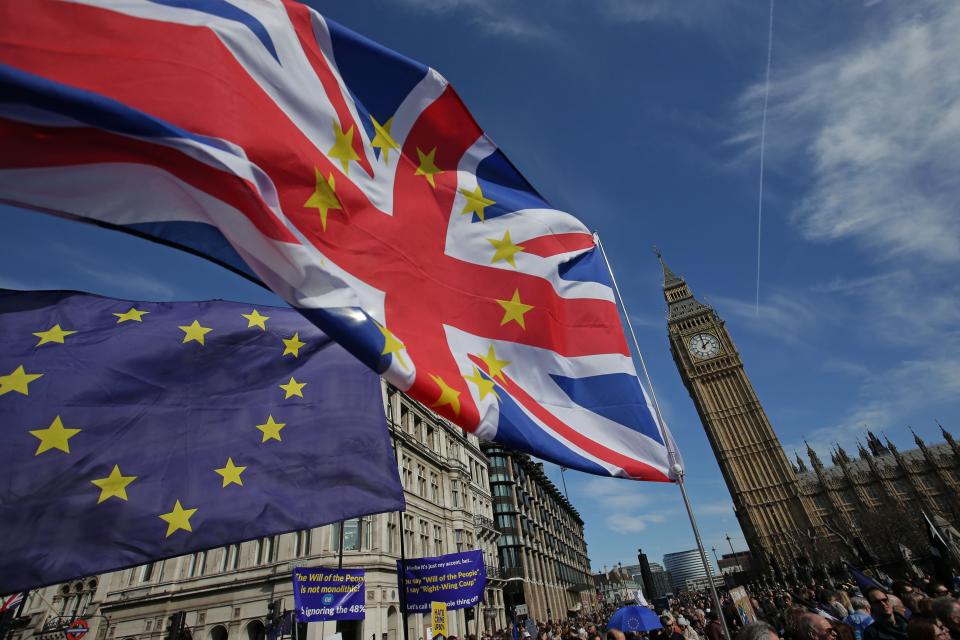The public is far from ready to ‘move on’ from the Brexit vote

We have reached the fifth anniversary of the Brexit referendum, when the UK voted by 52 per cent to 48 per cent to leave the EU. In the event, it took nearly all of that time to complete a process that proved to be far from straightforward. And while the issue now no longer dominates the headlines, it continues to be both controversial and divisive so far as public opinion is concerned.
Throughout the last five years, surveys conducted by the National Centre for Social Research have tracked the ebbs and flows of public attitudes towards Brexit for the whatukthinks.org/eu website. They have persistently shown that in any second referendum most voters would vote exactly the same way as they did in 2016. Even in our most recent survey, conducted earlier this year, as many as 82 per cent of those who voted five years ago indicated that their preference had not changed.
This might be thought to imply that Leave would still win any second referendum on Brexit – albeit only narrowly. However, those who voted Remain (86 per cent) are a little more likely than those who backed Leave (78 per cent) to say they would vote the same way again. More importantly our surveys have also consistently found (as have most polls) that those who did not vote in 2016 – including those who have since come of age – have been backing Remain over Leave by at least two to one. Consequently, it is far from clear (despite Conservative success in the 2019 general election) that there was still a majority for leaving the EU by the time the UK exited EU in January 2020.
Still, the choice facing the UK now is no longer Remain vs Leave but rather whether to “stay out” or “rejoin”. Perhaps many a Remain supporter has now come to accept that Brexit has happened and would not want back an attempt to rejoin. That is true of some – but not many – Remain supporters. Nine in 10 (90 per cent) of those who say they would now vote Remain state that they would vote to rejoin. That said, as many as 96 per cent of current Leave supporters would vote to stay out. These figures imply that, at present at least, there is probably a narrow majority – though no more than that – against rejoining the EU.
Either way, what is clear is that far from being ready to “move on”, voters are still deeply divided on the wisdom of the decision to leave the EU. That is also true of what they think the UK’s departure will bring.
Nowhere is this more apparent than on perceptions of the economic consequences of leaving the EU. With a free trade deal with the EU now in place, around a half of those who voted Leave in 2016 (51 per cent) think that Britain’s economy will be better off in the wake of Brexit, while just one in five (20 per cent) believe it will be worse off. In contrast, the mood among Remain voters is highly pessimistic – as many as four in five (83 per cent) believe that the economy will be worse off, just as they have done throughout the Brexit process.
Unsurprisingly, Remain and Leave voters also take a different view about whether the UK has got a good or a bad deal out of the Brexit negotiations. Only 16 per cent of Remain voters believe that the UK has got a good deal, while 53 per cent believe it has obtained a bad one. In contrast, 35 per cent of Leave supporters believe the deal is a good one, while just 22 per cent reckon it is bad.
Still, it might be thought that the level of approval for the deal among Leave voters is relatively modest. In part, the explanation is that around one in four Leave voters (24 per cent) believe that the UK should have left the EU without a deal. Meanwhile, three in five Leave voters (62 per cent) believe that the EU has handled Brexit badly and this perception also appears to colour some Leave voters’ perception of the outcome of the Brexit process.
In contrast, for Remain voters, the UK government is primarily to blame for delivering an outcome that at least two-thirds (69 per cent) reckon will result in a more distant relationship with the EU than they would like. Brexit may be done, but it looks as though the debate is still far from over.
Sir John Curtice is senior fellow at the National Centre for Social Research and the UK in a Changing Europe
Read More
Watch live as Lord Frost questioned by MPs over Brexit and EU relations
Five years on from the EU referendum, Brexit is not remotely close to being ‘done’

 Yahoo Finance
Yahoo Finance 